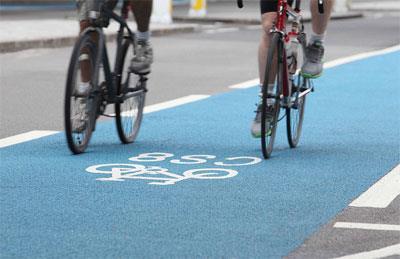
by Jack Semple, RHA, director of policy
Cycle safety concerns have come to the boil, as six cyclists were killed in London in just 12 days, four after colliding with HGVs.
Tragic, terrible incidents that are the result of problems for which there is no quick fix. And as the RHA has sought to make clear, it is far from just being about trucks – it is about inadequate infrastructure, a range of bad cyclist behaviour and a need for better driving standards by all, to prevent not only deaths but an appalling and rising number of serious injuries caused mostly by cars rather than trucks.
Hauliers across the country are going to feel the impact of what has been happening in London – regardless of the rights or wrongs. And they need to respond positively, even if there are aspects they do not like, which seems quite likely.
First, let’s recap what’s happened in London. Last month, coroner Mary Hassell formally required London mayor Boris Johnson to answer charges that some of his cycle superhighways are unsafe, after two cyclists died in collision with trucks.
Last week, Boris broke what the RHA had called his “deafening silence” on the issue of cyclist behaviour, telling The Guardian newspaper that cyclists have a duty to obey the laws of the road and to heed signals. We need more of that from you, Boris, rather than just hauliers and gold medalist Laura Trott – even though you get vilified for it. The message has to get through to cyclists that through recklessness or lack of appreciation of risk, what cyclists are doing in London is one element of the problem.
Then another two cyclists died.
In Paris, meanwhile, the press branded London the cyclist death capital of the world. The first Boris bike victim was a French student, you may remember.

Emotions are running very high and both facts and analysis have suffered as a result. Baroness Jenny Jones, the Green’s London Assembly member, suggests that banning trucks in peak periods will reduce both deaths and serious injuries. In fact, very few serious injuries are caused by HGVs in London or anywhere else. In 2012, 23 out of 118 cyclists deaths were after a collision with an HGV, which is just under 20%; and only 4% of serious injury incidents involved HGVs – fewer still in London.
And it was astonishing to hear Hackney MP Diane Abbott telling Radio 4 last Sunday that there’s nothing wrong with cyclists’ behaviour and that lorry drivers need to be more careful. She conceded that she neither drove nor cycled.
But trucks are what people are talking about.
Olympic gold medallist Chris Boardman grabbed national TV attention with his call for trucks to be banned from London in peak periods, which is a serious policy objective of both cyclist groups and some urban planners. (You can say that it is a pity in terms of road safety that Trott didn’t get the same level of broadcast coverage when she called for higher standards of cycling. But that’s not how news works.)
My own view is that such a measure would be seriously bad for London and that there are better ways of improving the safety of cyclists, and London's cycling commissioner Andrew Gilligan has encouragingly identified reasons why it’s not a good idea. But we have definitely not heard the last of the idea and we would be ill-advised to ignore the debate.
So what is to be done? I believe that we need a holistic approach to safety, focused on evidence and road safety outcomes; and that the haulage industry and its drivers need to play their part. First off, we have to both educate cyclists and to do more to ensure they obey the Highway Code and the laws of the road, along with other road users.
The number one issue for truck drivers is the way cyclists come up the inside. Transport for London (TfL), the cycling groups, the RHA and others agreed a campaign with the slogan “Stay back, Stay safe”. We need more of that because it is clear that there is a lack of appreciation of risk.
We need a general campaign targeted at improving the culture of all drivers – of cars, vans, taxis, buses and trucks. I believe there is a role here for the Department for Transport as well as TfL.

And what of the haulage industry in London? The RHA welcomes the clamp-down on construction and waste sector operators in and around London by the police and Vosa, which started this autumn. We suggested it five years ago. The truth is that there has been a shortage of enforcement within the capital for as long as most of us can remember – we have had ground to make up. The consequence of poor enforcement is that the great majority of hauliers, who operate properly, have faced unfair competition that has held them back.
As we move forward, we need to be open to new ideas to improve road safety and to ensure that they are proportionate, effective, workable for the driver and properly applied. The logistics sector – hauliers and their customers – need to work in partnership because both have much to offer.
I believe that there is a grave danger of the haulage industry being scapegoated as an easy target when cyclist and motorist behaviour, and the standard of our infrastructure are considered too difficult to tackle – although there are signs, as Boris showed last week, that may be starting to change.
Most RHA members do a fantastic job for their customers and the economy as a whole. And the vast majority of truck drivers in London do an amazing job in difficult circumstances. But there is no room for complacency. Individual hauliers and drivers need to consider – are we doing all we reasonably can on this issue? The more honestly and convincingly we can answer “yes”, the stronger will be our case with customers, regulators and the public.
Jack Semple is director of policy at the Road Haulage Association














